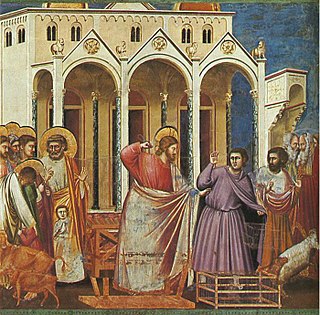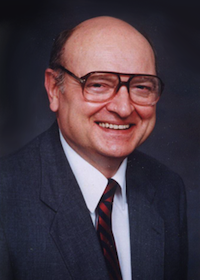Related Research Articles

Anti-capitalism is a political ideology and movement encompassing a variety of attitudes and ideas that oppose capitalism. In this sense, anti-capitalists are those who wish to replace capitalism with another type of economic system, such as socialism or communism.

A market economy is an economic system in which the decisions regarding investment, production and distribution to the consumers are guided by the price signals created by the forces of supply and demand. The major characteristic of a market economy is the existence of factor markets that play a dominant role in the allocation of capital and the factors of production.
The Christian left is a range of Christian political and social movements that largely embrace social justice principles and uphold a social doctrine or social gospel. Given the inherent diversity in international political thought, the term Christian left can have different meanings and applications in different countries. While there is much overlap, the Christian left is distinct from liberal Christianity, meaning not all Christian leftists are liberal Christians and vice versa.
Christian socialism is a religious and political philosophy that blends Christianity and socialism, endorsing left-wing politics and socialist economics on the basis of the Bible and the teachings of Jesus. Many Christian socialists believe capitalism to be idolatrous and rooted in the sin of greed. Christian socialists identify the cause of social inequality to be the greed that they associate with capitalism. Christian socialism became a major movement in the United Kingdom beginning in the 19th century. The Christian Socialist Movement, known as Christians on the Left since 2013, is one formal group, as well as a faction of the Labour Party.
Christian communism is a theological view that the teachings of Jesus compel Christians to support religious communism. Although there is no universal agreement on the exact dates when communistic ideas and practices in Christianity began, many Christian communists argue that evidence from the Bible suggests that the first Christians, including the Apostles in the New Testament, established their own small communist society in the years following Jesus' death and resurrection. Many advocates of Christian communism and other communists, including Karl Kautsky, argue that it was taught by Jesus and practised by the apostles themselves. This is generally confirmed by historians.
Qutbism is an Islamist ideology which was developed by Sayyid Qutb, a leading member of the Muslim Brotherhood who was executed by the Egyptian government in 1966. It has been described as advancing the extremist, jihadist ideology of propagating "offensive jihad" – waging jihad in conquest – "armed jihad in the advance of Islam", and simply "Islamic-based terrorism".

Maʿālim fī aṭ Ṭarīq, also Ma'alim fi'l-tareeq, or Milestones, first published in 1964, is a short book written by the influential Egyptian Islamist author Sayyid Qutb, in which he makes a call to action and lays out a plan to re-create the "extinct" Muslim world on strictly Quranic grounds, casting off what he calls Jahiliyyah.

Criticism of capitalism ranges from expressing disagreement with the principles of capitalism in its entirety to expressing disagreement with particular outcomes of capitalism.
Muhammad Qutb, was a Muslim author, scholar and teacher who is best known as the younger brother of the Egyptian Muslim thinker Sayyid Qutb. After his brother was executed by the Egyptian government, Muhammad moved to Saudi Arabia, where he promoted his brother's ideas.
The ideas and practices of the leaders, preachers, and movements of the Islamic revival movement known as Islamism have been criticized by non-Muslims and Muslims.

19th-century German philosopher Karl Marx, the founder and primary theorist of Marxism, viewed religion as "the soul of soulless conditions" or the "opium of the people". According to Karl Marx, religion in this world of exploitation is an expression of distress and at the same time it is also a protest against the real distress. In other words, religion continues to survive because of oppressive social conditions. When this oppressive and exploitative condition is destroyed, religion will become unnecessary. At the same time, Marx saw religion as a form of protest by the working classes against their poor economic conditions and their alienation. Denys Turner, a scholar of Marx and historical theology, classified Marx's views as adhering to Post-Theism, a philosophical position that regards worshipping deities as an eventually obsolete, but temporarily necessary, stage in humanity's historical spiritual development.

Sayyid 'Ibrāhīm Ḥusayn Quṭb, known popularly as Sayyid Qutb, was an Egyptian author, educator, Islamic scholar, theorist, revolutionary, poet, and a leading member of the Egyptian Muslim Brotherhood in the 1950s and 1960s. In 1966, he was convicted of plotting the assassination of Egyptian President Gamal Abdel Nasser and was executed by hanging. He is considered as "the Father of Salafi jihadism", the religio-political doctrine that underpins the ideological roots of global jihadist organisations such as al-Qaeda and ISIL.
The Spirit of Democratic Capitalism is a 1982 book by philosopher Michael Novak, in which Novak aims to understand and analyze the theological assumptions of democratic capitalism, its spirit, its values, and its intentions. Novak defines democratic capitalism as a pluralistic social system that contrasts with the unitary state of the traditional society and the modern socialist state. He analyzes it as a differentiation of society into three distinct yet interdependent power centers: a political sector, an economic sector, and a moral-cultural sector. Democracy needs the market economy and both need a pluralistic liberal culture. Against the continuing growth of democratic capitalism, modern socialism has contracted from a robust utopian program into vague "idealism about equality" and overwrought criticism of capitalism, most notably in the "liberation theology" of Latin America. Novak ends with the "beginnings of a theological perspective on democratic capitalism" illuminated by the journey from Marxism to realism of Reinhold Niebuhr.

There have been a variety of Christian views on poverty and wealth. At one end of the spectrum is a view which casts wealth and materialism as an evil to be avoided and even combated. At the other end is a view which casts prosperity and well-being as a blessing from God.
Types of socialism include a range of economic and social systems characterised by social ownership and democratic control of the means of production and organizational self-management of enterprises as well as the political theories and movements associated with socialism. Social ownership may refer to forms of public, collective or cooperative ownership, or to citizen ownership of equity in which surplus value goes to the working class and hence society as a whole. There are many varieties of socialism and no single definition encapsulates all of them, but social ownership is the common element shared by its various forms. Socialists disagree about the degree to which social control or regulation of the economy is necessary, how far society should intervene, and whether government, particularly existing government, is the correct vehicle for change.
Eco-socialism is an ideology merging aspects of socialism with that of green politics, ecology and alter-globalization or anti-globalization. Eco-socialists generally believe that the expansion of the capitalist system is the cause of social exclusion, poverty, war and environmental degradation through globalization and imperialism, under the supervision of repressive states and transnational structures.
Islamic socialism is a political philosophy that incorporates Islamic principles into socialism. As a term, it was coined by various Muslim leaders to describe a more spiritual form of socialism. Islamic socialists believe that the teachings of the Quran and Muhammad—especially the zakat—are not only compatible with principles of socialism, but also very supportive of them. They draw inspiration from the early Medinan welfare state established by Muhammad. Muslim socialists found their roots in anti-imperialism. This can especially be seen in the writings of Salama Moussa, who wrote extensively both about socialism, and about Egyptian nationalism against British rule.
In Karl Marx's critique of political economy and subsequent Marxian analyses, the capitalist mode of production refers to the systems of organizing production and distribution within capitalist societies. Private money-making in various forms preceded the development of the capitalist mode of production as such. The capitalist mode of production proper, based on wage-labour and private ownership of the means of production and on industrial technology, began to grow rapidly in Western Europe from the Industrial Revolution, later extending to most of the world.

Ronald H. Nash was a philosophy professor at Reformed Theological Seminary. Nash served as a professor for over 40 years, teaching and writing in the areas of worldview, apologetics, ethics, theology, and history. He is known for his advocacy of Austrian economics, and his criticism of the evangelical left.

Anti-imperialism in political science and international relations is a term used in a variety of contexts, usually by nationalist movements who want to secede from a larger polity or as a specific theory opposed to capitalism in Leninist discourse, derived from Vladimir Lenin's work Imperialism, the Highest Stage of Capitalism. Less common usage refers to opponents of an interventionist foreign policy.
References
- ↑ Sayyid Qutb Archived 2009-09-09 at the Wayback Machine .
- ↑ ICL – Iran – Constitution.
- ↑ From Civil Rights to Black Liberation: Malcolm X and the Organization of Afro-American Unity, William W. Sales, South End Press, 1994, ISBN 0-89608-480-9, p. 85.